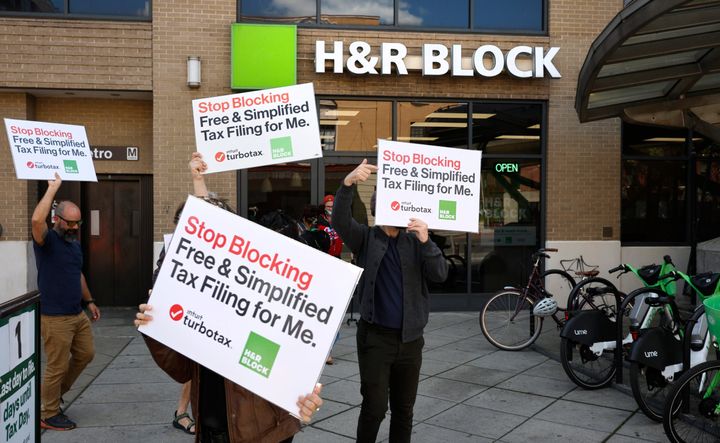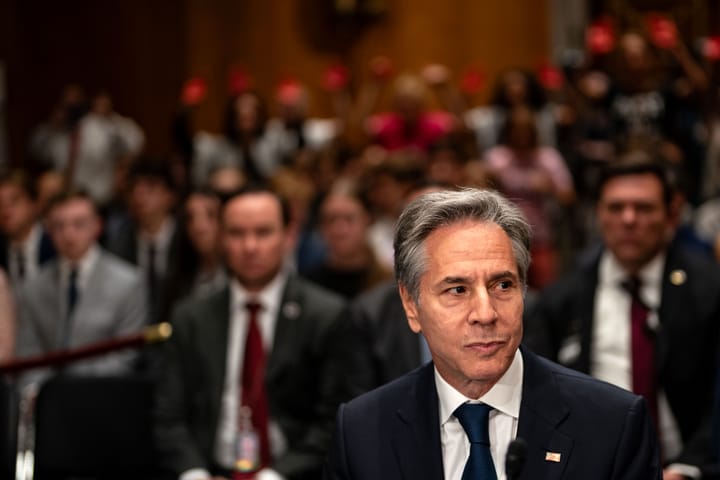As the tax preparation industry fights against the Internal Revenue Service offering a free e-filing system, one of its lobbying groups has hired three new lobbyists with ties to the congressional committees that oversee the IRS.
The lobbyists were hired on May 1, shortly before the IRS announced on May 16 that the Treasury Department has directed it to take a long-awaited next step and develop a free e-filing tool, in what it calls a “limited pilot” for the 2024 tax season. The announcement came on the same day the IRS submitted a feasibility study of such a system to Congress, which was required by a provision in the Inflation Reduction Act (IRA) that Congress passed last year. They are planning to lobby on “Issues related to tax administration and tax-time financial products,” according to a Senate filing.
The new lobbyists work for the law firm Brownstein Hyatt Farber Schreck and were retained by American Coalition for Taxpayer Rights (ACTR), a trade association founded in 2011 by several tax prep companies. The group’s members include the two largest industry players in Intuit, owner of TurboTax, and H&R Block, as well as Republic Bank, Liberty Tax Services, and software company TaxSlayer.
For years, ACTR has argued against a free filing option with claims that it would endanger Americans’ privacy, threaten tax system security, and undercut the existing free filing tools available for taxpayers earning less than a certain amount per year. The group’s general counsel, Steve Ryan, said recently that “a direct e-file system is unnecessary, costly and will divert attention and resources from more pressing priorities at IRS.”
A report by the watchdog Government Accountability Office found that only three percent of Americans who are eligible use the free filing options currently offered by TaxSlayer and other companies. If an official IRS tool were offered and use increased, the bureau found, its staffing and operation could cost $200 million a year—funding that would likely need to be approved in annual congressional appropriations. At the same time, this expenditure could save taxpayers billions annually in tax preparation fees, according to the Treasury’s chief implementation officer for the IRA, slashing the ballpark cost per return from $40 to $10. The report also found that 72% of taxpayers surveyed were interested in using a free IRS-provided online tool to prepare and file their taxes. The vast majority of other wealthy countries pre-fill some portion of tax returns, including Australia, Spain, and Sweden.
Brownstein Hyatt (BHFS) has been the top-spending lobbying firm in Washington D.C. for the past two years, according to a tally on OpenSecrets. The firm’s lobbying clients already include Intuit subsidiary Credit Karma, as well as collection agency PRA Group and the ACA International trade association of debt collectors. Lobbyists for Intuit with BHFS including Zachary Pfister and Nadeam Elshami are hefty bundlers of contributions to the House and Senate Democratic campaign arms that work to re-elect incumbents.
Three of the new ACTR lobbyists previously worked for committees that conduct oversight of the IRS: Russell Sullivan, staff director of the Senate Finance Committee from 2003-2013; Harold Hancock, tax counsel of the House Ways and Means Committee from 2011-2017; and Mark Warren, chief tax counsel of the Senate Finance Committee from 2019-2021, as well as deputy assistant secretary of the Department of the Treasury’s office of Legislative Affairs.
David D. Ransom, who was recently hired by BHFS with a focus on tax policy and administration, will lobby for ACTR after working from 2007-2008 as senior advisor to former House Majority Leader Steny Hoyer (D-Md.), where he weighed in on floor strategy and communications, according to BHFS. Since the first quarter of 2011, Ransom lobbied for ACTR as a partner at law firm McDermott Will & Emery, Senate records show.
Hoyer was a member of the House Democratic leadership in 2019 when the House passed H.R. 3151, the Taxpayer First Act, sponsored by the late Rep. John Lewis (D-Ga.), a bill with a provision that threatened to permanently bar the IRS from offering its own free filing system. In June of that year, the House and Senate passed a revised version of the bill, following a voice vote in the Senate, that removed the provisions that could have legally barred the IRS from offering an official e-filing service, according to ProPublica. The bill was signed into law by President Trump on July 1, 2019.
The lobbying group ACTR raised more than $1 million in each of 2020 and 2021, according to its annual tax returns, and spent half a million dollars on federal lobbying in 2021 and 2022. In the first quarter of this year, the group spent $70,000 lobbying Congress on issues including the tax filing simplification measures that became law in the IRA. One of the group’s former chairs, Daniel Eubanks, is now the director of federal government relations and a lobbyist for Intuit.
A long-running ProPublica reporting series has documented how tax prep companies steered customers into paying for tax return filings while mounting lobbying efforts against an officially-supported IRS option—one that could lay the groundwork for pre-populated tax returns that taxpayers review and approve, slashing the costs of the process. Intuit and H&R Block have together topped $35 million in federal lobbying spending since 2006, the year that tax prep companies in the Free File Alliance started a partnership with the IRS that prevented an official e-filing system for taxpayers, with the conservative group Americans for Tax Reform spending millions more. The Grover Norquist-led group is leading a renewed push to block the Biden administration and IRS initiative through a coalition letter to members of Congress signed by David McIntosh, president of Club for Growth, and Adam Brandon, president of FreedomWorks.



